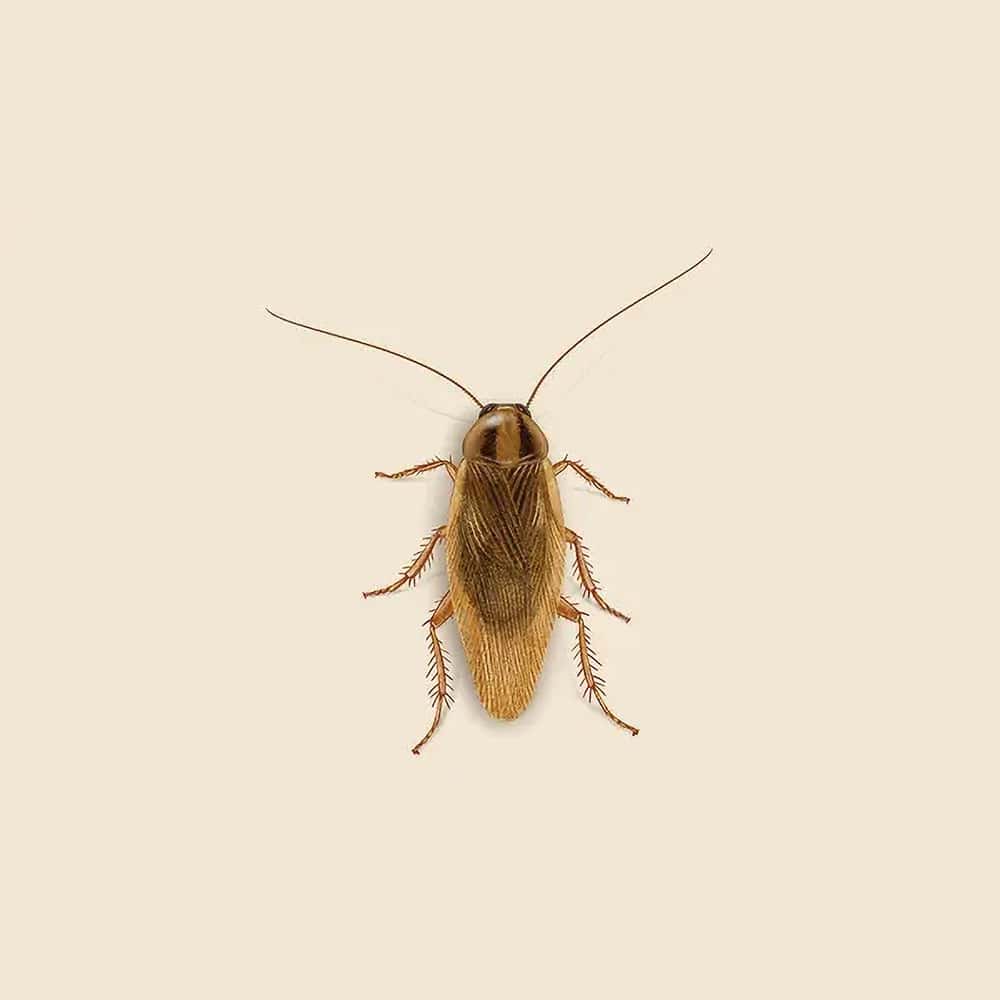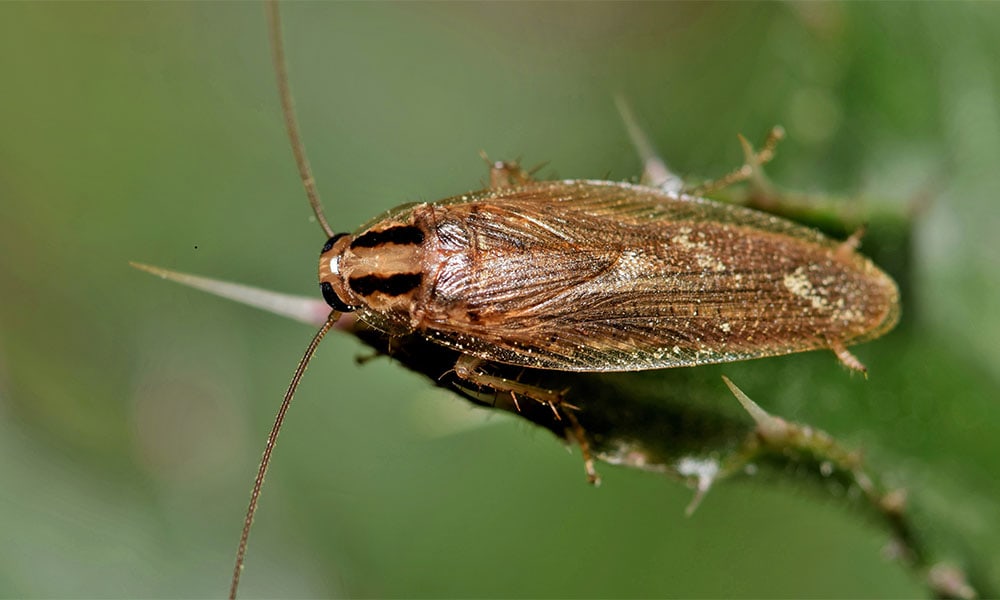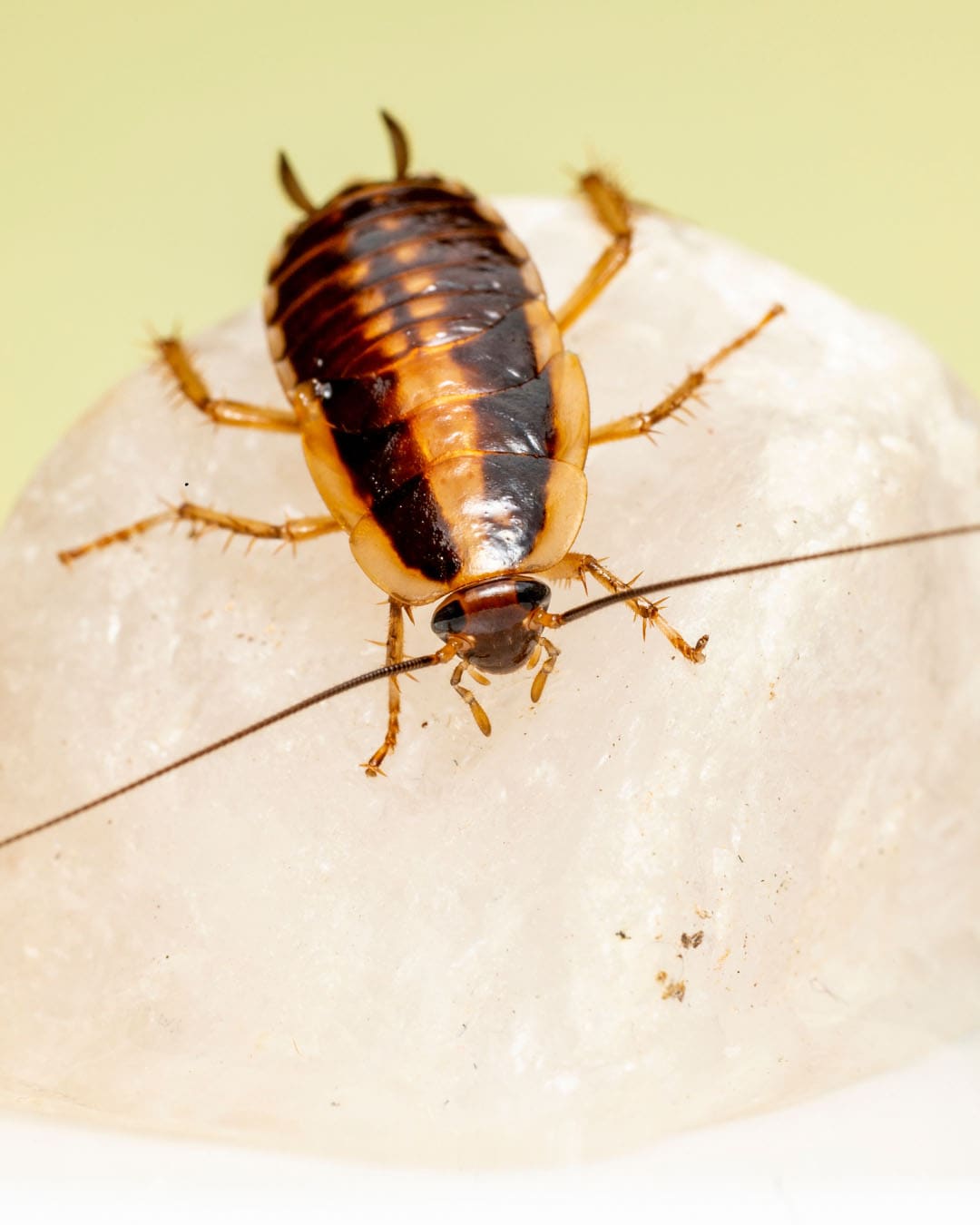German Cockroach Facts & Information
German cockroaches are among the most common and problematic indoor pests. Their small size, rapid reproduction, and ability to spread quickly make them a significant concern for homeowners and businesses alike.

Blattella Germanica
What You Need To Know About German Cockroaches
What do German cockroaches look like?
German cockroaches (Blattella germanica) are small, light brown to tan cockroaches, typically measuring about 1/2 to 5/8 inch in length. They have two parallel dark stripes running from the head to the base of the wings, which are visible on the upper side of their thorax. Their bodies are oval-shaped, with long, slender legs and antennae.
What do German cockroaches eat?
German cockroaches are omnivorous scavengers and feed on a wide range of food items, including crumbs, food scraps, grease, and even paper products. They are highly opportunistic and will consume almost any organic material they come across.
What sort of habitat do German cockroaches live in?
German cockroaches prefer warm, moist environments and are commonly found in indoor spaces such as kitchens, bathrooms, and basements. They hide in dark, secluded areas near food and water sources, such as under appliances, in cabinets, and behind baseboards.
How do German cockroaches commonly behave?
German cockroaches are nocturnal and are most active at night. They are quick runners and can squeeze into very small crevices. They reproduce rapidly, with each female capable of producing several egg cases in her lifetime, each containing numerous eggs. Their ability to reproduce quickly can lead to large infestations if not managed properly.
Did you know this about German cockroaches?
German cockroaches are one of the most common and troublesome cockroach species in homes and businesses. They are known for their resilience and ability to develop resistance to various insecticides over time. Additionally, German cockroaches are associated with health risks, including the spread of allergens and pathogens that can trigger asthma and allergic reactions in sensitive individuals. Their presence in a building often indicates issues with sanitation or moisture control, making effective pest management essential for maintaining a healthy environment.
Understanding German Cockroach Infestations
Understanding German cockroach infestations is crucial for effective management. German cockroaches are small, light brown to tan in color, with two dark stripes running lengthwise on their thorax. They prefer warm, moist environments and are commonly found in kitchens, bathrooms, and other areas with readily available food and water sources. German cockroaches reproduce quickly, with a single female capable of producing hundreds of offspring in a year, leading to large and persistent infestations if not managed promptly.

How Hearts Handles German Cockroach Treatment
Hearts Pest Management employs an integrated pest management approach to handle German Cockroach infestations.
German Cockroach Inspection
German Cockroach Treatment
German Cockroach Prevention
Educational Resources

Think You Might Have a German Cockroach Infestation?
At Hearts Pest Control, we understand the challenges associated with German Cockroach infestations and are here to provide professional solutions tailored to your needs. Flourishing in warm and humid climates, they are prevalent in many regions, including San Diego County, Orange County, and Los Angeles County.